For many, the final list of the contestants (in the category Adult Literature) to win the best Lithuanian book of 2015 came as no surprise. Three out of five finalists were Lithuanian authors living abroad.
 The novel Odilė, arba Oro uostų vienatvė (Odile or the Loneliness of Airports) is written by Valdas Papievis, who has been living between Paris and Vilnius for more than a decade. His newest book tells a story about the loneliness of an independent human being and the everyday life of a French aristocrat in Paris.
The novel Odilė, arba Oro uostų vienatvė (Odile or the Loneliness of Airports) is written by Valdas Papievis, who has been living between Paris and Vilnius for more than a decade. His newest book tells a story about the loneliness of an independent human being and the everyday life of a French aristocrat in Paris.
 The second finalist, Buying on Time, by Canadian-Lithuanian author, Antanas Šileika, consists of thirteen interrelated short stories about Lithuanian emigrant family life in Canada told with plenty of humour and gentle irony. Although it seems that the author tells his own story, in fact, this book is not autobiographical. Šileika’s book has received considerable attention in Canada and has won several awards.
The second finalist, Buying on Time, by Canadian-Lithuanian author, Antanas Šileika, consists of thirteen interrelated short stories about Lithuanian emigrant family life in Canada told with plenty of humour and gentle irony. Although it seems that the author tells his own story, in fact, this book is not autobiographical. Šileika’s book has received considerable attention in Canada and has won several awards.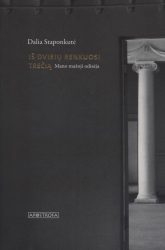 The author of the third contestant and the winner of the Best Lithuanian Book-2015, Iš dviejų renkuosi trečią: mano mažoji odisėja (Out of the Two I Prefer the Third: My Little Odyssey), Dalia Staponkutė, is a Lithuanian writer, philosopher and translator currently living in Cyprus. In her second book, Staponkutė continues to tell the story about her journey as a Lithuanian, a woman and a mother abroad, only this time, from cultural and philosophical reflections she turns toward intimacy. The book also won the prize for the most creative book of the year in Lithuania.
The author of the third contestant and the winner of the Best Lithuanian Book-2015, Iš dviejų renkuosi trečią: mano mažoji odisėja (Out of the Two I Prefer the Third: My Little Odyssey), Dalia Staponkutė, is a Lithuanian writer, philosopher and translator currently living in Cyprus. In her second book, Staponkutė continues to tell the story about her journey as a Lithuanian, a woman and a mother abroad, only this time, from cultural and philosophical reflections she turns toward intimacy. The book also won the prize for the most creative book of the year in Lithuania.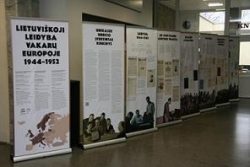 After the successful presentations in Norway, Switzerland, and Italy, the travelling exhibition “Lithuanian Publishing in Post-WWII Europe” is back in Lithuania. On 27 January 2016 it was opened at Pasvalys Marius Katiliškis Public Library as part of a day-long event “The Library and the 21st Century Society”. Opening remarks were delivered by Jolanta Budriūnienė, head of the Lithuanian Studies Research Department (former Lituanica Department) of the National Library of Lithuania, who noted that the collection of Lithuanian DP publishing, 1945-1952, housed at the National Library of Lithuania, is of particular value for its unique content, produced under extremely difficult conditions. In 2011, it was recognized by UNESCO — the collection was included in UNESCO’s “World Memory” programme for the Lithuanian National Register. Pasvalys M. Katiliškis Public Library is only the first stop for this exhibition. Its organizer, the National Library of Lithuania, is planning to take it to all major public libraries in the country.
After the successful presentations in Norway, Switzerland, and Italy, the travelling exhibition “Lithuanian Publishing in Post-WWII Europe” is back in Lithuania. On 27 January 2016 it was opened at Pasvalys Marius Katiliškis Public Library as part of a day-long event “The Library and the 21st Century Society”. Opening remarks were delivered by Jolanta Budriūnienė, head of the Lithuanian Studies Research Department (former Lituanica Department) of the National Library of Lithuania, who noted that the collection of Lithuanian DP publishing, 1945-1952, housed at the National Library of Lithuania, is of particular value for its unique content, produced under extremely difficult conditions. In 2011, it was recognized by UNESCO — the collection was included in UNESCO’s “World Memory” programme for the Lithuanian National Register. Pasvalys M. Katiliškis Public Library is only the first stop for this exhibition. Its organizer, the National Library of Lithuania, is planning to take it to all major public libraries in the country.
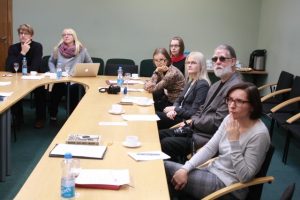 On 3 November 2015 the Martynas Mažvydas National Library of Lithuania hosted the annual international Baltic Heritage Network diaspora seminar. It was the 22nd event in the last six years and the second to be held in Vilnius. It brought together researchers, librarians and archivists from all three Baltic countries working in the field of diaspora studies. In this international forum, eight papers were presented. Topics for three paper sessions ranged from collecting, exploring and digitizing archival data to making field research of diaspora communities, and analysing exile literature.
On 3 November 2015 the Martynas Mažvydas National Library of Lithuania hosted the annual international Baltic Heritage Network diaspora seminar. It was the 22nd event in the last six years and the second to be held in Vilnius. It brought together researchers, librarians and archivists from all three Baltic countries working in the field of diaspora studies. In this international forum, eight papers were presented. Topics for three paper sessions ranged from collecting, exploring and digitizing archival data to making field research of diaspora communities, and analysing exile literature.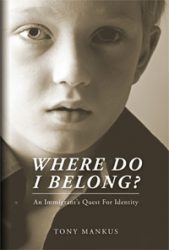 At the age of five, Tony Mankus along with his family was forced to leave Lithuania during World War II. The feeling and even pain of being exiled has never left him, neither in his young days spent in the DP camp in Germany, nor in old age living in the United States. “Where do I belong? Where is my place?” are key questions that Mankus tries to answer in his book “Where Do I Belong To?: An Immigrant’s Quest for Identity”(2013). This frank and unsentimental story will be of a special interest to those readers who want to learn more about authentic experiences of immigrants.
At the age of five, Tony Mankus along with his family was forced to leave Lithuania during World War II. The feeling and even pain of being exiled has never left him, neither in his young days spent in the DP camp in Germany, nor in old age living in the United States. “Where do I belong? Where is my place?” are key questions that Mankus tries to answer in his book “Where Do I Belong To?: An Immigrant’s Quest for Identity”(2013). This frank and unsentimental story will be of a special interest to those readers who want to learn more about authentic experiences of immigrants.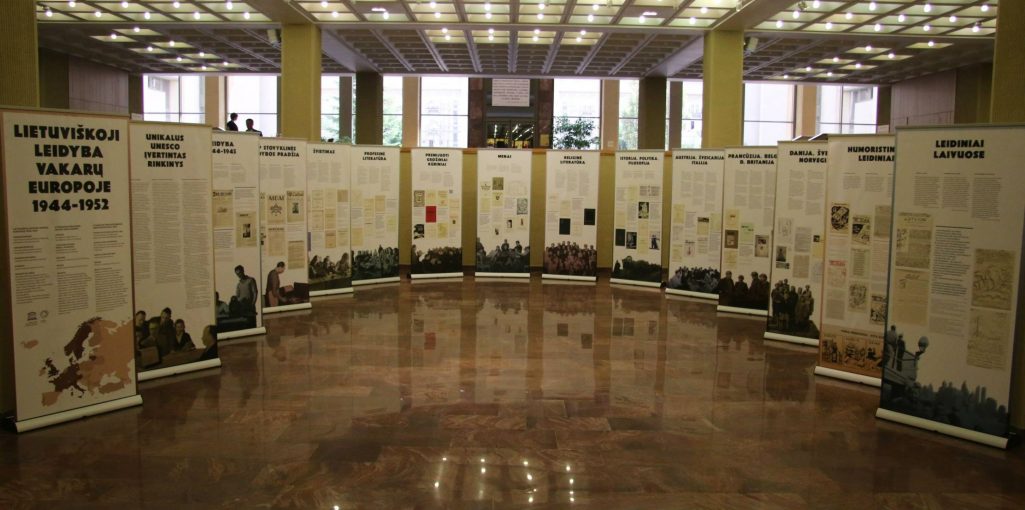
 In the opening speech, the head of the Department, Jolanta Budriūnienė, talked about the idea of the exhibition – using the rich collection of Lithuanian DP Publishing, 1945-1952, housed at the National Library of Lithuania to commemorate 70 years since the mass westward flight of the Baltic Displaced Persons, refugees from war-torn Lithuania. It should be noted that in 2011, the collection was recognised as part of Lithuania’s documentary heritage and included in the UNESCO’s program “World Memory” for the Lithuanian National Register.
In the opening speech, the head of the Department, Jolanta Budriūnienė, talked about the idea of the exhibition – using the rich collection of Lithuanian DP Publishing, 1945-1952, housed at the National Library of Lithuania to commemorate 70 years since the mass westward flight of the Baltic Displaced Persons, refugees from war-torn Lithuania. It should be noted that in 2011, the collection was recognised as part of Lithuania’s documentary heritage and included in the UNESCO’s program “World Memory” for the Lithuanian National Register.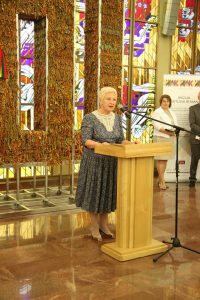 The Deputy Speaker of Lithuanian Parliament and the hostess of the exhibition, Irena Degutienė, stressed that at the end of WWII, while Europe was freeing itself, in Lithuania, guerrilla fighting had only intensified and the mass deportations were taking place. Thus, it is not surprising that Lithuanian publishing, exiled from the homeland, had to establish itself in the West. “Our language was alive and will be alive, because everything depends on our willingness to speak the language, regardless of where one lives,” Degutienė concluded her speech.
The Deputy Speaker of Lithuanian Parliament and the hostess of the exhibition, Irena Degutienė, stressed that at the end of WWII, while Europe was freeing itself, in Lithuania, guerrilla fighting had only intensified and the mass deportations were taking place. Thus, it is not surprising that Lithuanian publishing, exiled from the homeland, had to establish itself in the West. “Our language was alive and will be alive, because everything depends on our willingness to speak the language, regardless of where one lives,” Degutienė concluded her speech.